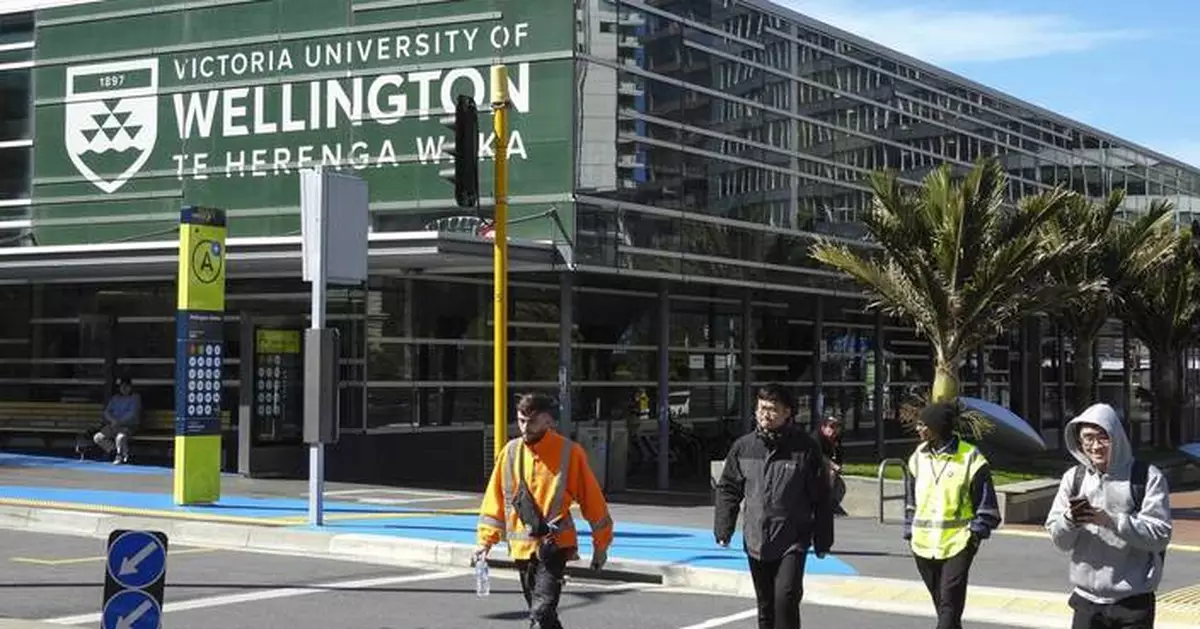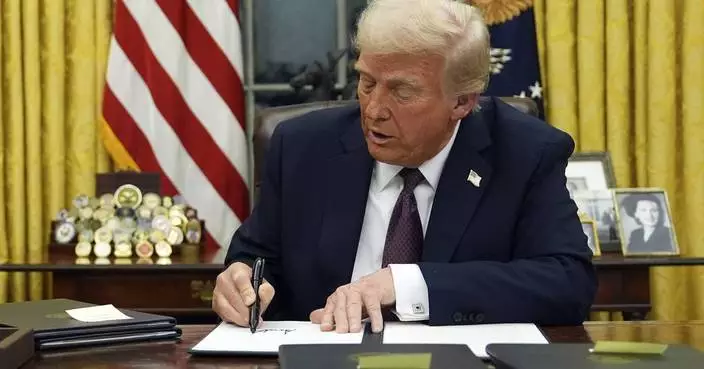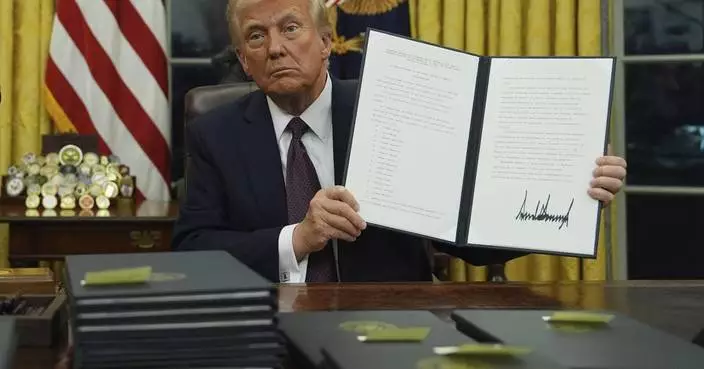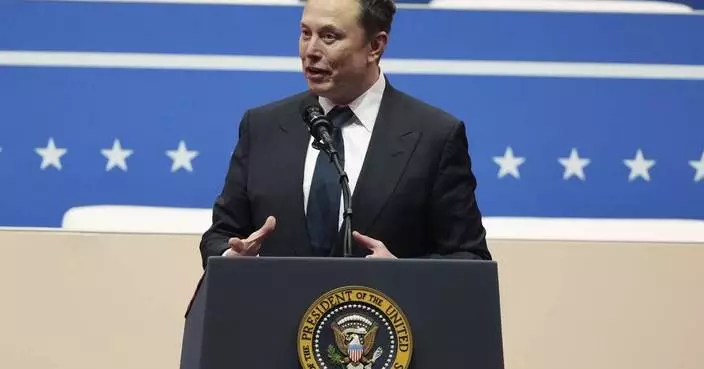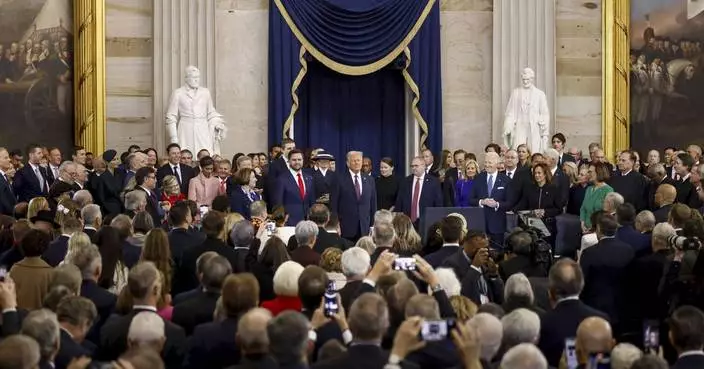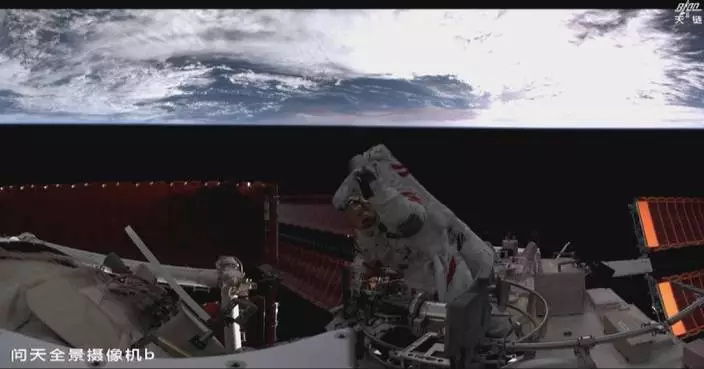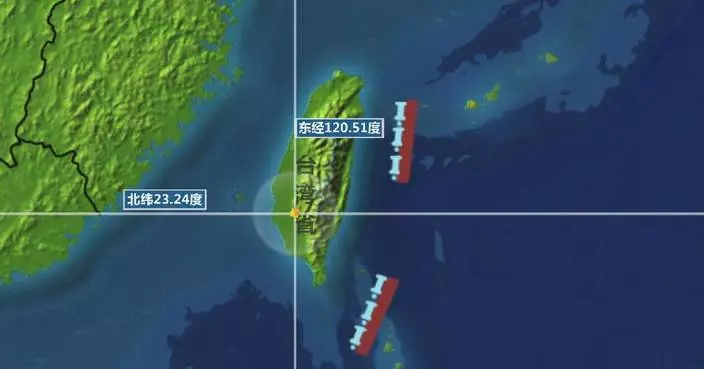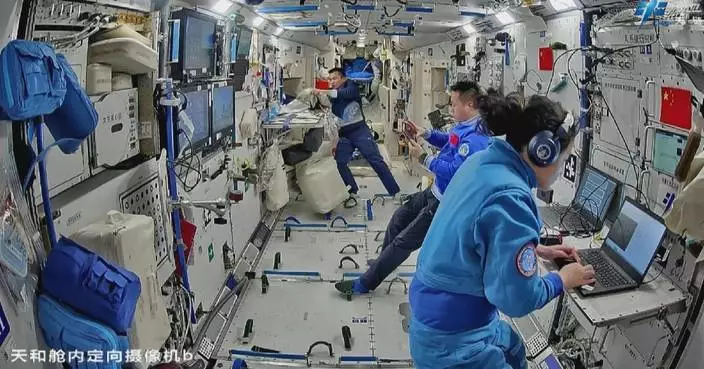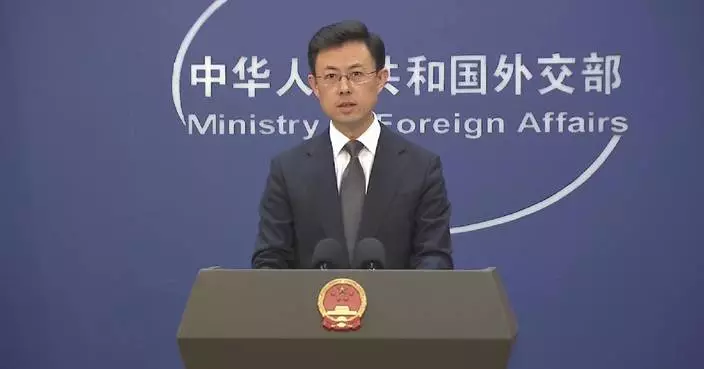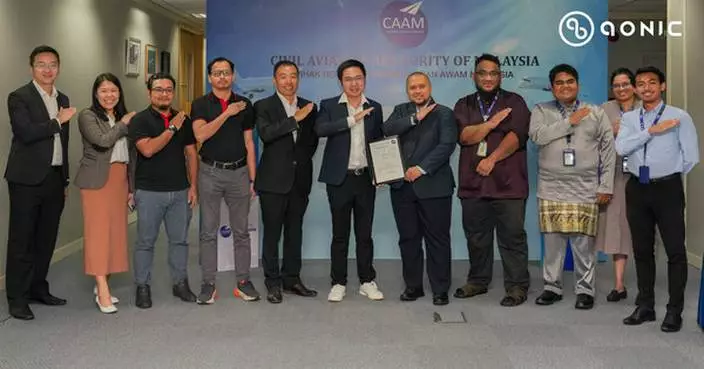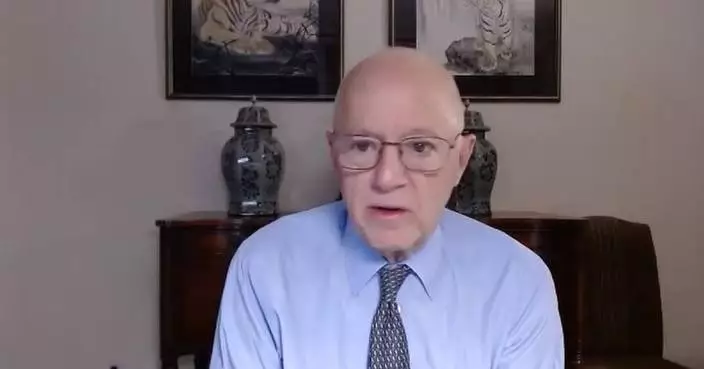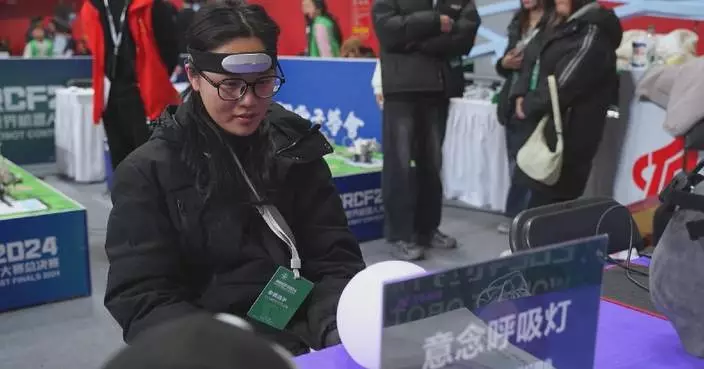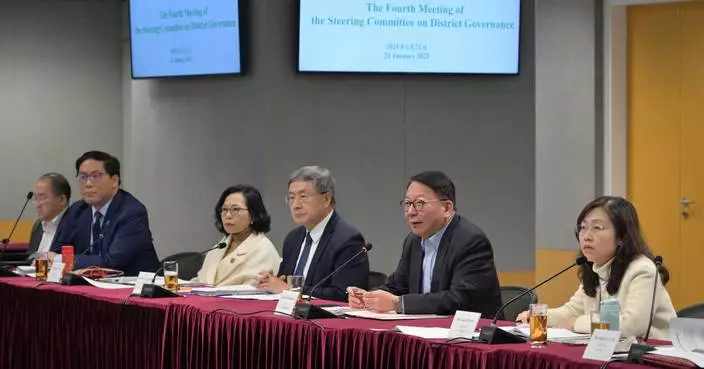WELLINGTON, New Zealand (AP) — On the eve of New Zealand’s Māori language celebration week, the country’s right-wing political leaders ordered public agencies to stop affirmative action policies for Māori people, who are disadvantaged on almost every metric.
The lawmakers then posted on social media about their enthusiasm for the Indigenous tongue. “In New Zealand we’re lucky to have this language and I’m glad to celebrate it,” Prime Minister Christopher Luxon of the center-right National party wrote on Facebook Monday.
Click to Gallery
People walk past a sign encouraging them to order a coffee in Maori, during annual Maori language week in Wellington, New Zealand, Wednesday, Sept. 18, 2024. (AP Photo/Charlotte GrahamMcLay)
People walk on the waterfront near a mural honoring Maori leader Whae June Te Raumange Jackson as New Zealand celebrates its annual Maori language week in Wellington, New Zealand, Wednesday, Sept. 18, 2024. (AP Photo/Charlotte GrahamMcLay)
People cross a road near a taxi stand written in English and Maori languages as New Zealand celebrates its annual Maori language week in Wellington, New Zealand, Wednesday, Sept. 18, 2024. (AP Photo/Charlotte GrahamMcLay)
This shows the Emergency Department written in English and Maori languages at Wellington's Regional Hospital as New Zealand celebrates its annual Maori language week in Wellington, New Zealand, Wednesday, Sept. 18, 2024. (AP Photo/Charlotte GrahamMcLay)
A taxi waits at a stand outside the Wellington Regional Hospital, written in English and Maori languages as New Zealand celebrates its annual Maori language week in Wellington, New Zealand, Wednesday, Sept. 18, 2024. (AP Photo/Charlotte GrahamMcLay)
People walk past the name of Victoria University of Wellington, written in English and Maori languages as New Zealand celebrates its annual Maori language week in Wellington, New Zealand, Wednesday, Sept. 18, 2024. (AP Photo/Charlotte GrahamMcLay)
Māori was not solely “the preserve of people who think a certain way,” said David Seymour, the leader of populist party ACT — whose detractors accuse him of anti-Māori policies — in a video introducing his followers to economic terms in the language.
Their remarks reflected the exploding popularity of Māori culture and language – which has reversed course from the brink of extinction decades ago to become part of everyday life in New Zealand. There are waiting lists for classes and a chain store's clothing line for Māori language week sold out in minutes.
But they also belied a fraught debate about race roiling New Zealand, fueled by the polarized politics confronting many Western democracies and a backlash against the previous left-wing government. Last year, that sentiment brought to power fringe parties claiming that special treatment for Māori language and people — promised in the country's founding document and intended to address deep inequities — has created social division and unequal rights.
As a government comprising those groups and Luxon's ramps up initiatives stripping recognition of Māori from policy and law, analysts say they imperil New Zealand’s standing on Indigenous matters.
“We’ve been world leaders and now that is being clawed back,” said Ella Henry, a Māori entrepreneurship professor at Auckland University of Technology. “I don’t know that this government quite understands the negative impact that is not only going to have on us politically but economically, because Māori culture is a tourism destination.”
The relationship between Māori and the government — a coalition between Luxon’s and Seymour’s parties and a third, populist New Zealand First — promises to be “not just the most, but the only regressive one” in nearly two decades, said Ben Thomas, a political consultant who worked for a previous National government before Luxon led the party.
Their words echo others across the political spectrum who spoke to The Associated Press. They describe the way in which New Zealand has grown more racially fraught since the government took office last November, while at the same time public support for Māori culture has surged — a paradox rooted in the way the political system functions.
Without enough seats in Parliament to rule after an election that tipped Jacinda Ardern’s Labour party from office, Luxon formed a government with two minor parties whose leaders — both Māori — capitalized on dissatisfaction about policies that favor Māori.
The two groups combined received less than 15% of the national vote, but extracted a series of concessions from Luxon amounting to “an onslaught of racist policy,” said Janell Dymus-Turei, an expert in Māori health policy currently based at the Centers for American Indian and Alaska Native Health in Colorado.
Central to the groups' resentment is how the Treaty of Waitangi, New Zealand’s founding document, has become integrated in law. It was signed in 1840, between Māori tribes and the British Crown which colonized New Zealand, but breaches of the rights promised to Māori and contested interpretations of the treaty since gave way to an Indigenous protest movement in the 1970s.
The activism prompted a Māori renaissance – immersion language pre-schools, billions of dollars in settlements between the government and tribes, and inclusion in law of the Treaty’s principles, which promise Māori a say in decision-making and protection of their interests. Much of the legal recognition is due to be revised.
This week’s order to public servants to stop targeting policy initiatives by race -- unless it was proven as the only contributing factor to a problem -- was insidious because it did not require a parliamentary vote, Dymus-Turei said.
“The government are not just using legislative measures, they’re using their directive powers within their ministries” to repeal Māori rights, she added. Māori die on average seven years younger than non-Māori for women and eight years younger for men. They record higher rates of health issues — including cancers and respiratory and heart problems — that policies such as earlier screening and free doctors’ visits have sought to address.
Speaking to reporters Friday, Seymour denied the directive was anti-Māori. Policy should be “based on equal rights for each and every citizen, no matter what your background,” he said, adding that health issues where Māori disproportionately suffered could be explained by poverty or lack of housing, which affect other New Zealanders too — although Māori are disadvantaged in both.
Seymour has also secured a pledge that parliament will consider his proposed law drastically redefining the Treaty of Waitangi’s principles. Luxon has promised the bill will not succeed, but it will be open for public submissions. Detractors warn this threatens months of racially charged debate about a matter that many New Zealanders consider long settled.
“The wording is so vague that if something like that were to ever go through, you would see decades of court cases and probably greater rights for Māori,” said Thomas. “But none of that matters because the bill is a cipher for people to project all of their feelings and frustrations about the place of Māori in society.”
A greater threat to Māori rights, Thomas said, was a concession won by New Zealand First, led by Winston Peters, to review and either repeal or replace all mentions of the Treaty of Waitangi in New Zealand law, with a few exceptions.
“This is not the prime ministership that Luxon expected or planned for or wanted,” said Thomas, adding that ACT and New Zealand First had gained power unprecedented for minor parties.
Luxon on Tuesday promoted his government’s record on Māori matters in Parliament, citing plans to improve literacy and numeracy and to move children out of emergency housing.
“When I actually think about what we’re doing to rebuild this economy, giving tax relief for Māori families to support them in a cost of living crisis, we’re a government focused on outcomes and we're improving them for Māori and non-Māori,” he said.
Luxon took Māori language lessons ahead of an election campaign in which he pledged to change the names of public agencies — some have adopted Māori titles in recent years — back to English.
The turmoil has arisen as a fresh Māori political movement has come of age. Māori lawmakers — including Seymour and Peters — hold 33 of Parliament’s 123 seats, six of them representing a Māori political party.
But Thomas said the previous left-wing government didn't do a good job of explaining its “completely defensible” policies advancing Māori rights, with the coronavirus pandemic and cost of living crisis amplifying the backlash.
Māori — who are nearly 20% of New Zealand’s population and disproportionately young — were more ready to oppose challenges to their rights than generations before, said Henry.
“The last 55, 60 years of Māori protest transformed the country that I was born into 70 years ago,” she said. “We’ve been galvanized into action, which I think is really positive.”
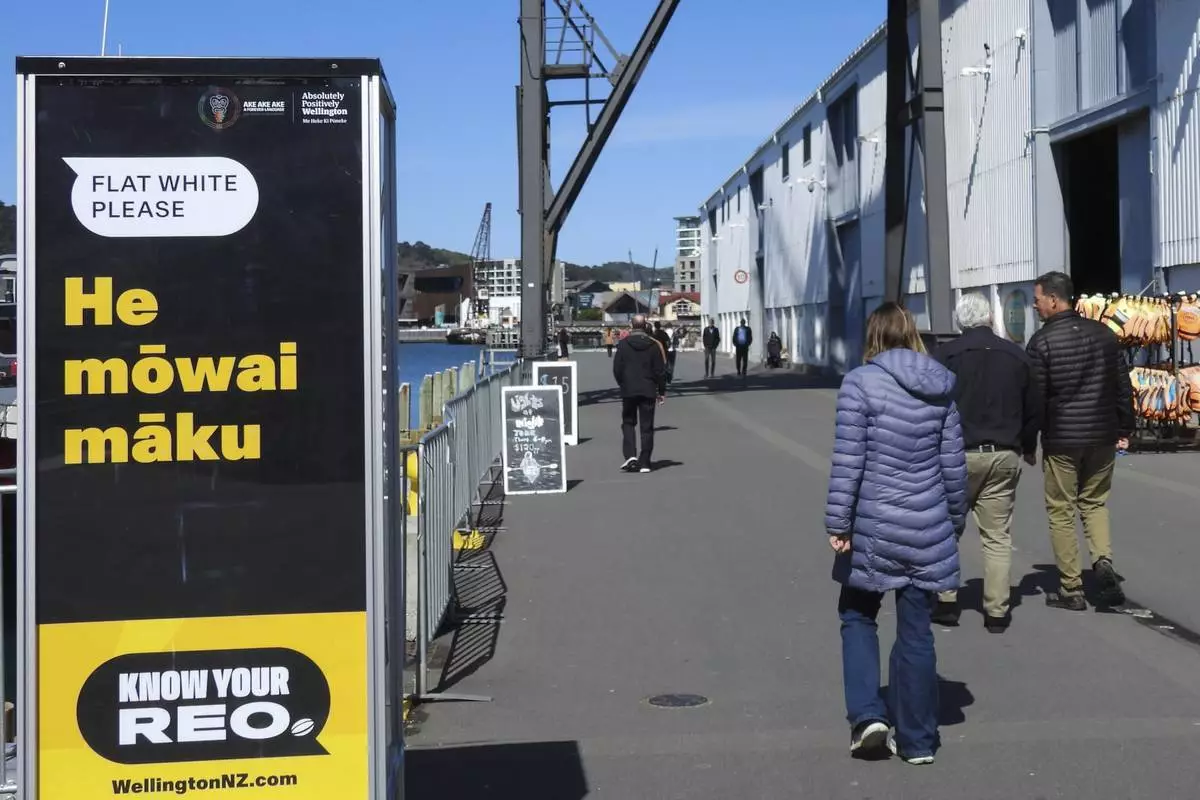
People walk past a sign encouraging them to order a coffee in Maori, during annual Maori language week in Wellington, New Zealand, Wednesday, Sept. 18, 2024. (AP Photo/Charlotte GrahamMcLay)
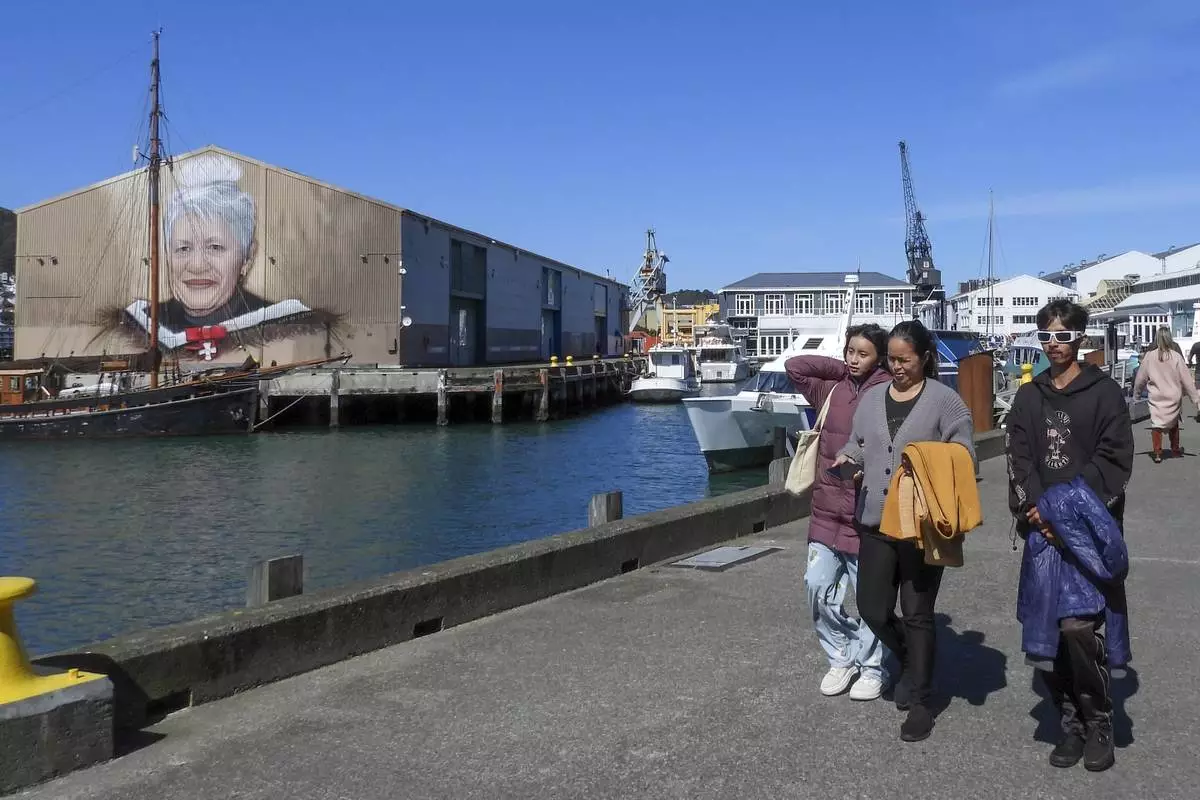
People walk on the waterfront near a mural honoring Maori leader Whae June Te Raumange Jackson as New Zealand celebrates its annual Maori language week in Wellington, New Zealand, Wednesday, Sept. 18, 2024. (AP Photo/Charlotte GrahamMcLay)
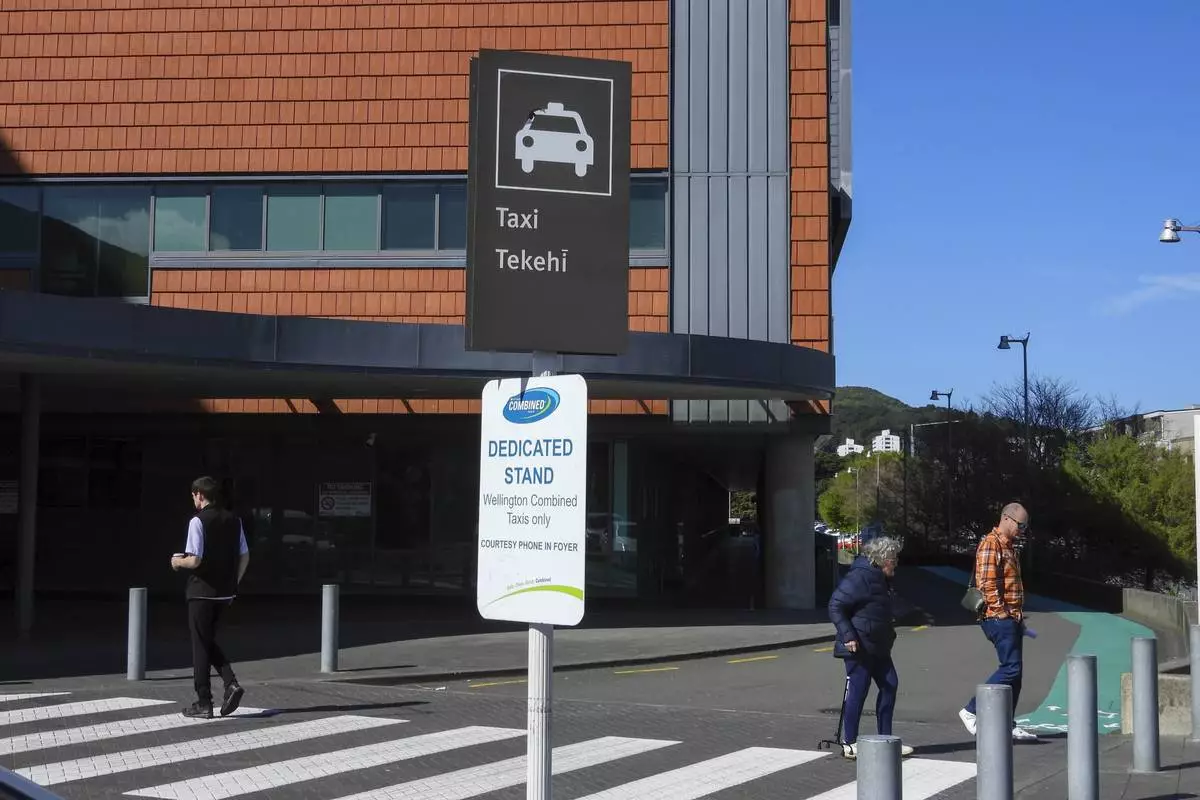
People cross a road near a taxi stand written in English and Maori languages as New Zealand celebrates its annual Maori language week in Wellington, New Zealand, Wednesday, Sept. 18, 2024. (AP Photo/Charlotte GrahamMcLay)
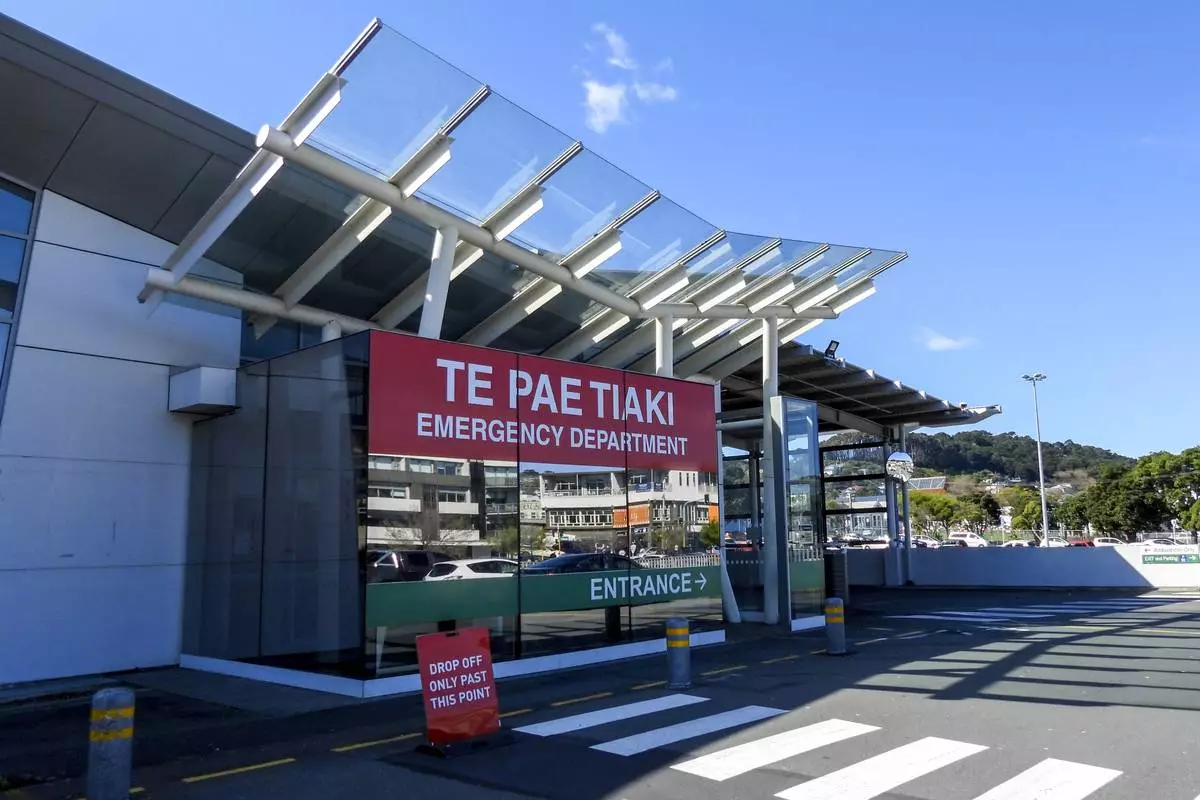
This shows the Emergency Department written in English and Maori languages at Wellington's Regional Hospital as New Zealand celebrates its annual Maori language week in Wellington, New Zealand, Wednesday, Sept. 18, 2024. (AP Photo/Charlotte GrahamMcLay)

A taxi waits at a stand outside the Wellington Regional Hospital, written in English and Maori languages as New Zealand celebrates its annual Maori language week in Wellington, New Zealand, Wednesday, Sept. 18, 2024. (AP Photo/Charlotte GrahamMcLay)
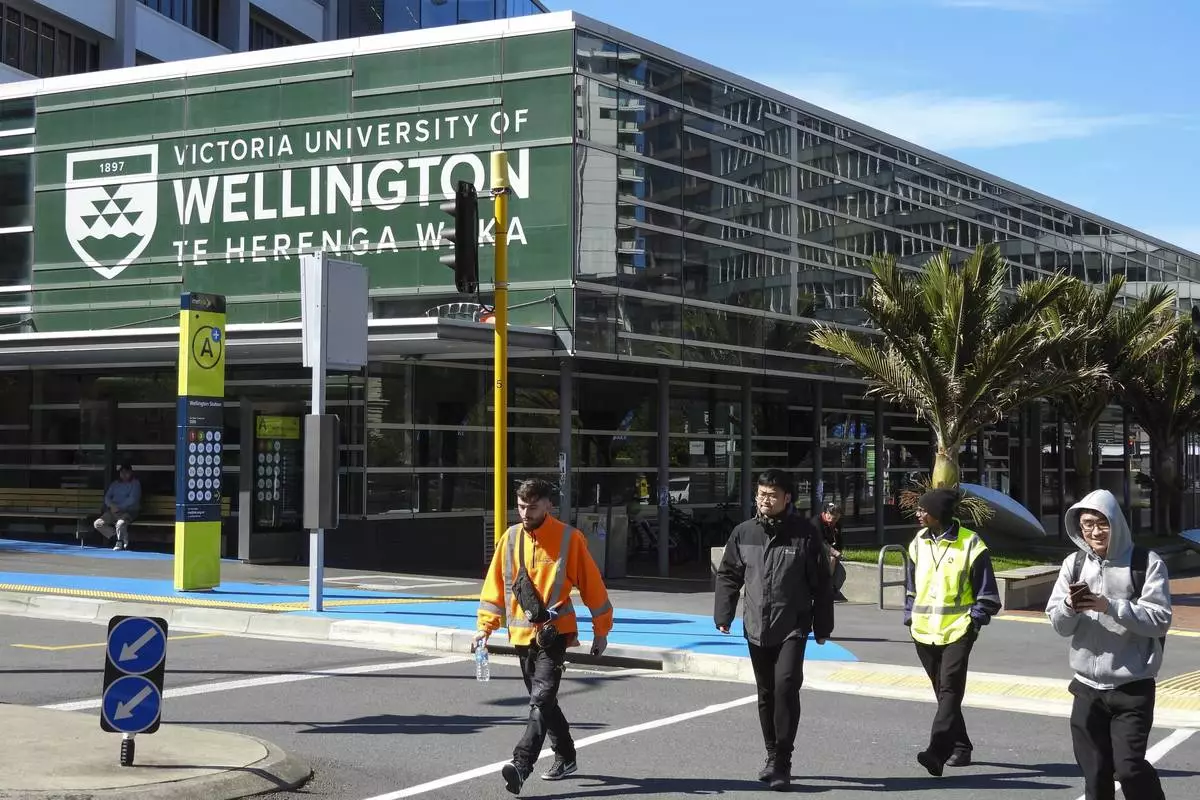
People walk past the name of Victoria University of Wellington, written in English and Maori languages as New Zealand celebrates its annual Maori language week in Wellington, New Zealand, Wednesday, Sept. 18, 2024. (AP Photo/Charlotte GrahamMcLay)
NEW ORLEANS (AP) — A rare frigid storm charged through Texas and the northern Gulf Coast on Tuesday, blanketing New Orleans and Houston with snow that closed highways, grounded nearly all flights and canceled school for more than a million students more used to hurricane dismissals than snow days.
The storm prompted the first ever blizzard warnings for several coastal counties near the Texas-Louisiana border, and snow plows were at the ready in the Florida Panhandle. Snow covered the white-sand beaches of normally sunny vacation spots, including Gulf Shores, Alabama and Pensacola, Florida. The heavy snow, sleet and freezing rain hitting parts of the Deep South came as a blast of Arctic air plunged much of the Midwest and the eastern U.S. into a deep freeze.
Nearly 2,000 flights to, from or within the U.S. were canceled Tuesday, with about 10,000 others delayed, according to online tracker FlightAware.com. Both Houston airports suspended flight operations starting Tuesday.
Alvaro Perez was hunkering down at George Bush Intercontinental Airport Tuesday after his flight to El Salvador, to visit his girlfriend for her birthday, was canceled. His new departure is scheduled for Thursday.
“I’ll just ride it and stay here,” said Perez, of Hockley, Texas, about 35 miles (55 kilometers) away.
Nearly every flight was cancelled at New Orleans Louis Armstrong International Airport, though officials said the airport itself would remain open “as long as the conditions are safe.” Most airlines planned to resume operations Wednesday.
It has been more than a decade since snow last fell on New Orleans, where schools are closed through Thursday. Bundled-up onlookers checked out the strange sight of Bourbon Street in the snow, including a snowcapped memorial to those killed in the New Year’s Day truck attack.
With more than 5 inches (13 centimeters) of snow already in parts of the city Tuesday, New Orleans has surpassed its record — 2.7 inches (6.8 centimeters) on Dec. 31, 1963 — according to the National Weather Service. There have been unofficial reports of 10 inches (26 centimeters) of snow in New Orleans in 1895, NWS meteorologist Christopher Bannan said.
The East Coast was blanketed in snow while people from the Northern Plains to the tip of Maine shivered in bitter cold from an arctic air mass that plunged temperatures well below normal.
In New Orleans, 65-year-old Robert Hammock donned a beanie and rallied himself and his border collie Tillie for a snowy morning walk.
“She loves the snow,” Hammock said, as Tillie sprawled happily in the slush on the sidewalk. “I’m from south Alabama, so I hate the snow.”
Winter storm warnings Tuesday extended from Texas to North Carolina, with heavy snow, sleet and freezing rain expected to move eastward through the region into Wednesday. Meanwhile, a state of emergency was declared Monday night across at least a dozen counties in New York as heavy lake-effect snow was expected around Lake Ontario and Lake Erie through Wednesday — with 1 to 2 feet (30 to 60 centimeters) possible — along with extreme cold temperatures.
Ahead of the storm, governors in Georgia, Louisiana, Mississippi, Alabama and even Florida — the Sunshine State — declared states of emergency and many school systems canceled classes Tuesday. School closures were planned in some coastal communities in North and South Carolina.
The NWS said up to 4 inches (10 centimeters) of snow fell in metro Houston. Texas transportation officials said more than 20 snow plows were in use across nearly 12,000 lane miles in the Houston area, which lacks its own city or county plows.
It’s the first time Houston has seen snow since a winter storm knocked out power to millions and killed more than 200 people across Texas in 2021, according to meteorologist Hayley Adams at the NWS in Houston.
Snow is rare in Texas' largest city. In February 1895, a two-day storm dropped a record 20 inches (50 centimeters) on metropolitan Houston.
Officials said one person has died from hypothermia in Georgia. Forecasters say snowfall could stretch from north Georgia, through Atlanta, and into southern portions unaccustomed to such weather.
Parts of the Florida Panhandle were coated white Tuesday. Tallahassee, Florida’s capital, last saw snow in 2018 — just 0.1 of an inch (0.25 centimeters), according to the weather service. Tallahassee's highest snowfall on record was 2.8 inches (7 centimeters) in 1958.
“Believe it or not, in the state of Florida we’re mobilizing snowplows,” said Florida Gov. Ron DeSantis.
Mobile, Alabama, hit 5.4 inches (13.7 centimeters) and counting Tuesday, topping the city’s one-day snowfall record of 5 inches (12.7 centimeters), set on Jan. 24, 1881, and nearing its all-time snowfall record of 6 inches (15.5 centimeters) in 1895, the weather service said.
The blizzard warning in effect until midday Tuesday was the first issued by the office in Lake Charles, Louisiana, according to meteorologist Donald Jones. Strong winds with heavy snow reduced visibility, and areas across the Gulf South that rarely see snow were expecting record-breaking snowfall, Jones said.
Louisiana transportation agency workers worked through the night to prepare bridges and roadways. Nonetheless, Louisiana State Police said they have already responded to more than 50 crashes Tuesday, and pleaded for people to stay home.
In Baton Rouge, where snowfall hit 6 inches (15 centimeters) by midday Tuesday, city officials and state police said the low visibility caused by the snow was making roads hazardous. It was the first snowfall in the capital city since 2018.
Frigid cold persisted across the eastern two-thirds of the country with multiple record lows possible through midweek, especially across the Gulf Coast and portions of the Southeast, the weather service said. Normal temperatures were only expected to return slowly by the end of the week.
Wind chills were expected to reach minus 30 to minus 50 degrees (minus 34 C to minus 46 C) at times across the Dakotas and into the Upper Midwest, posing an extreme risk of hypothermia and frostbite. Subzero wind chills were forecast from the Central Plains eastward through Wednesday night.
The NWS issued cold weather advisories across the Great Lakes region.
This latest cold snap comes from a disruption in the polar vortex, the ring of cold air usually trapped at the North Pole.
In Southern California, where blazes have killed at least 27 people and burned thousands of homes, dry conditions and strong Santa Ana winds remained a concern.
Associated Press writers Sarah Brumfield in Cockeysville, Maryland; Jack Brook in New Orleans; Sara Cline in Key Largo, Florida; Julie Walker in New York; Dave Collins in Hartford, Connecticut; Bruce Shipkowski in Toms River, New Jersey; Corey Williams in Detroit; Kate Payne in Tallahassee, Florida; Nadia Lathan in Austin, Texas; Ben Finley in Norfolk, Virginia; Jeffrey Collins in Columbia, South Carolina; Charlotte Kramon in Atlanta; Makiya Seminera in Raleigh, North Carolina; and Jonathan Mattise in Nashville, Tennessee, contributed.
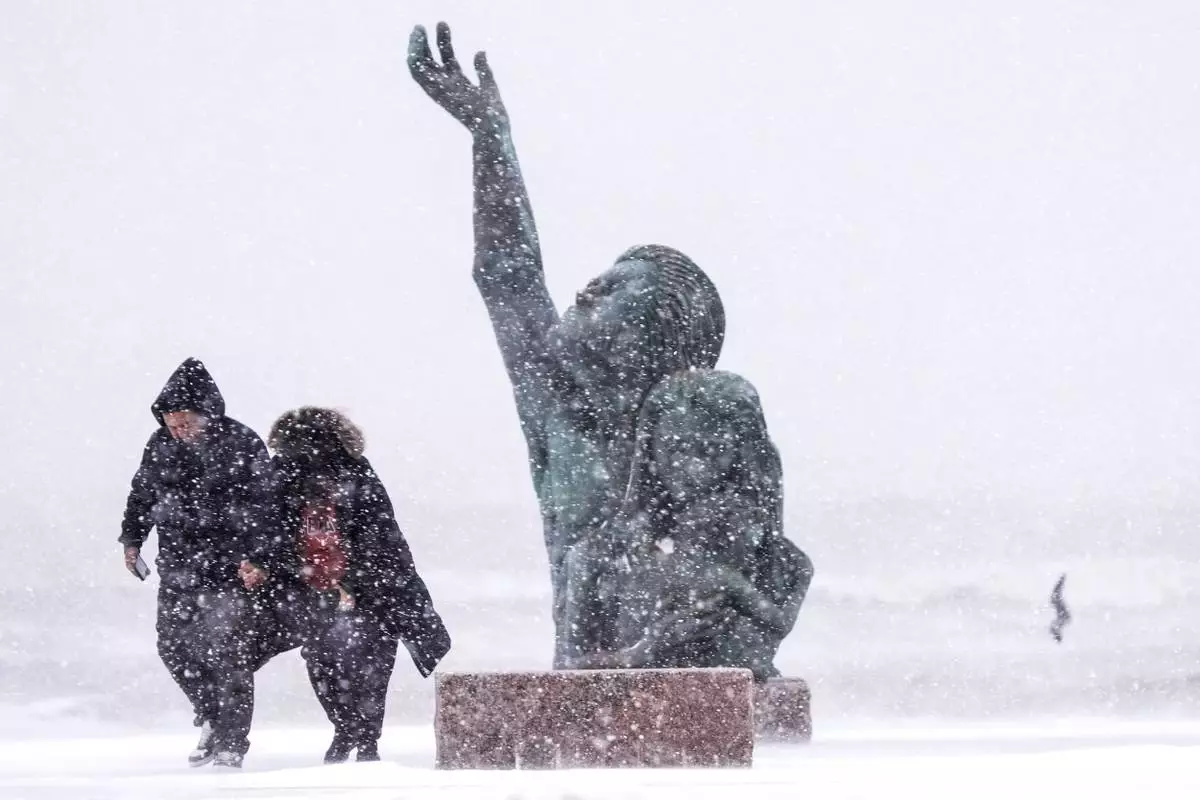
People walk past the 1900 Storm memorial sculpture on Seawall Blvd. during an icy winter storm on Tuesday, Jan. 21, 2025 in Galveston, Texas. (Brett Coomer/Houston Chronicle via AP)

Harrison County Beaches flourished with snowstorm Tuesday, Jan. 21, 2025 in Pass Christian, Miss. (Hunter Dawkins/The Gazebo Gazette via AP)
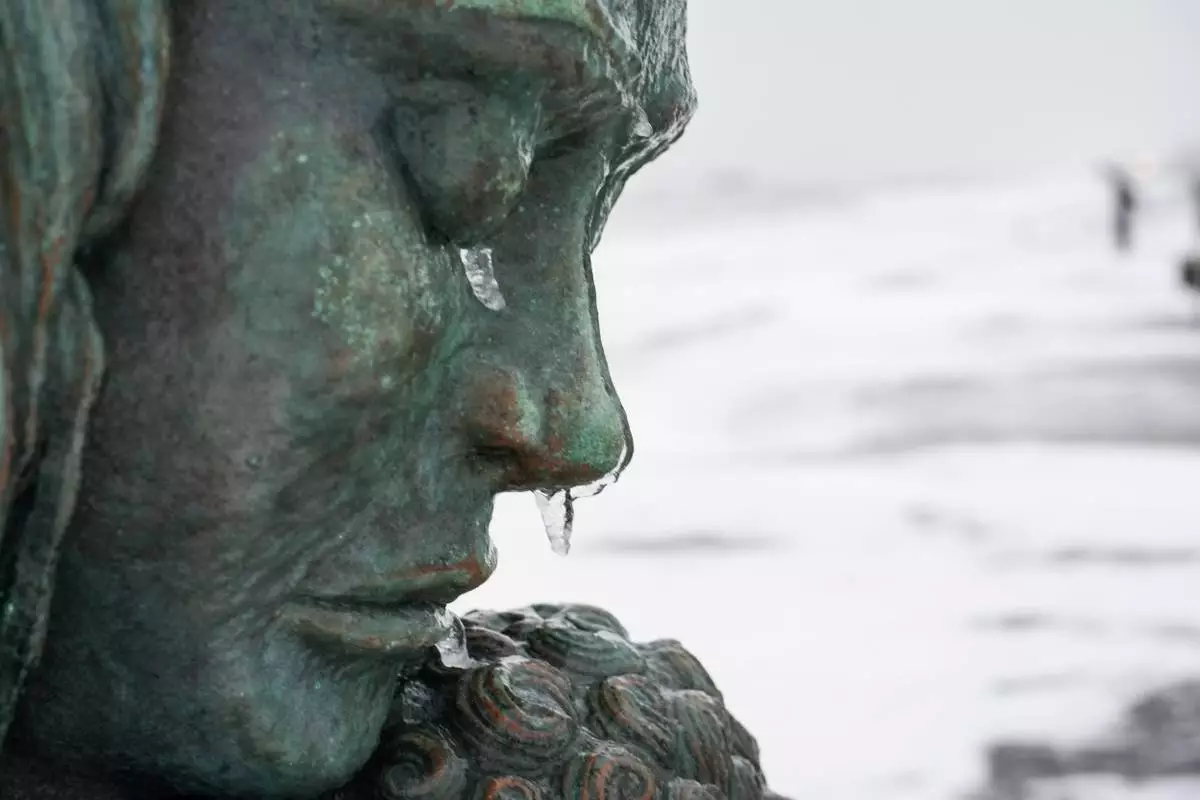
Ice is formed on the nose of the 1900 Storm memorial sculpture during an icy winter storm on Tuesday, Jan. 21, 2025 in Galveston, Texas. (Brett Coomer/Houston Chronicle via AP)

Harrison County Beaches flourished with snowstorm Tuesday, Jan. 21, 2025 in Pass Christian, Miss. (Hunter Dawkins/The Gazebo Gazette via AP)

People walk by the empty Cafe Du Monde restaurant in the French Quarter in New Orleans, Tuesday, Jan. 21, 2025. (AP Photo/Gerald Herbert)

Kristyn Tramel walks her dog Bluey with her 8-year-old son Penn in the French Quarter as they stop at the memorial for the victims of a deadly truck attack on New Year's Day in the French Quarter in New Orleans, Tuesday, Jan. 21, 2025. (AP Photo/Gerald Herbert)
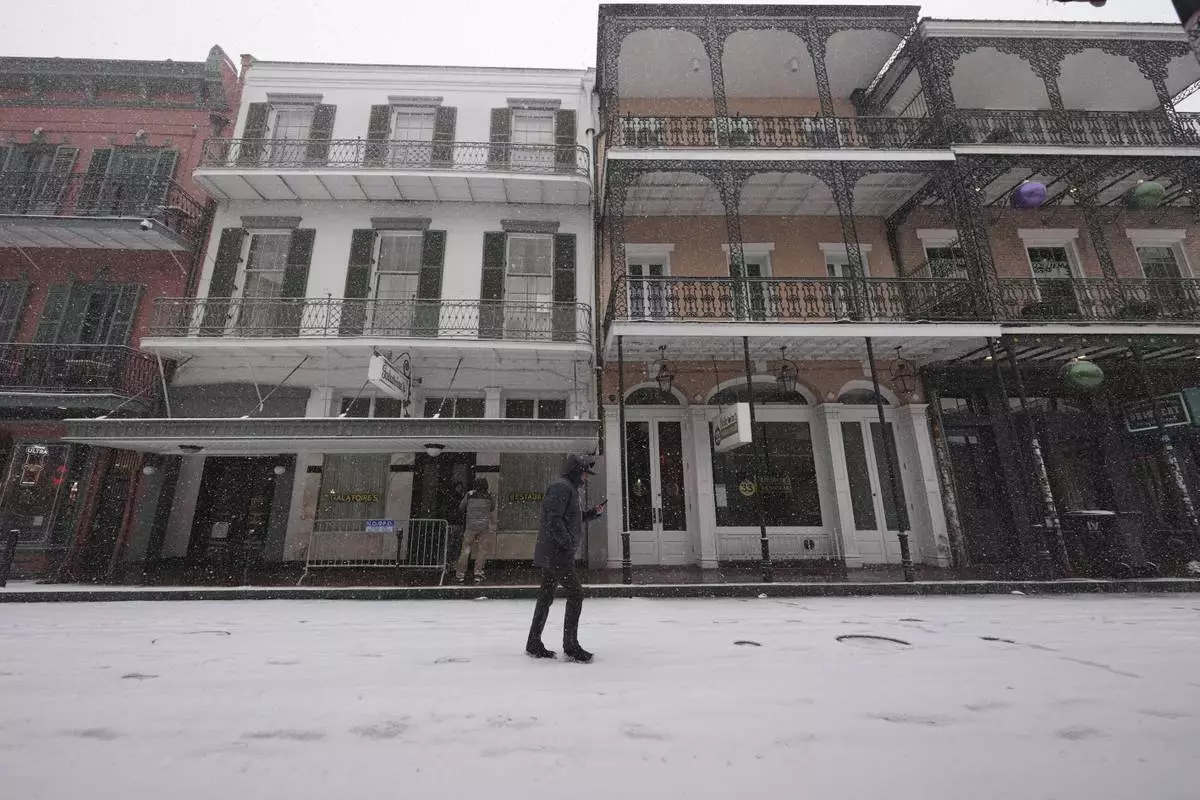
A person walks along snow covered Bourbon Street in the French Quarter in New Orleans, Tuesday, Jan. 21, 2025. (AP Photo/Gerald Herbert)
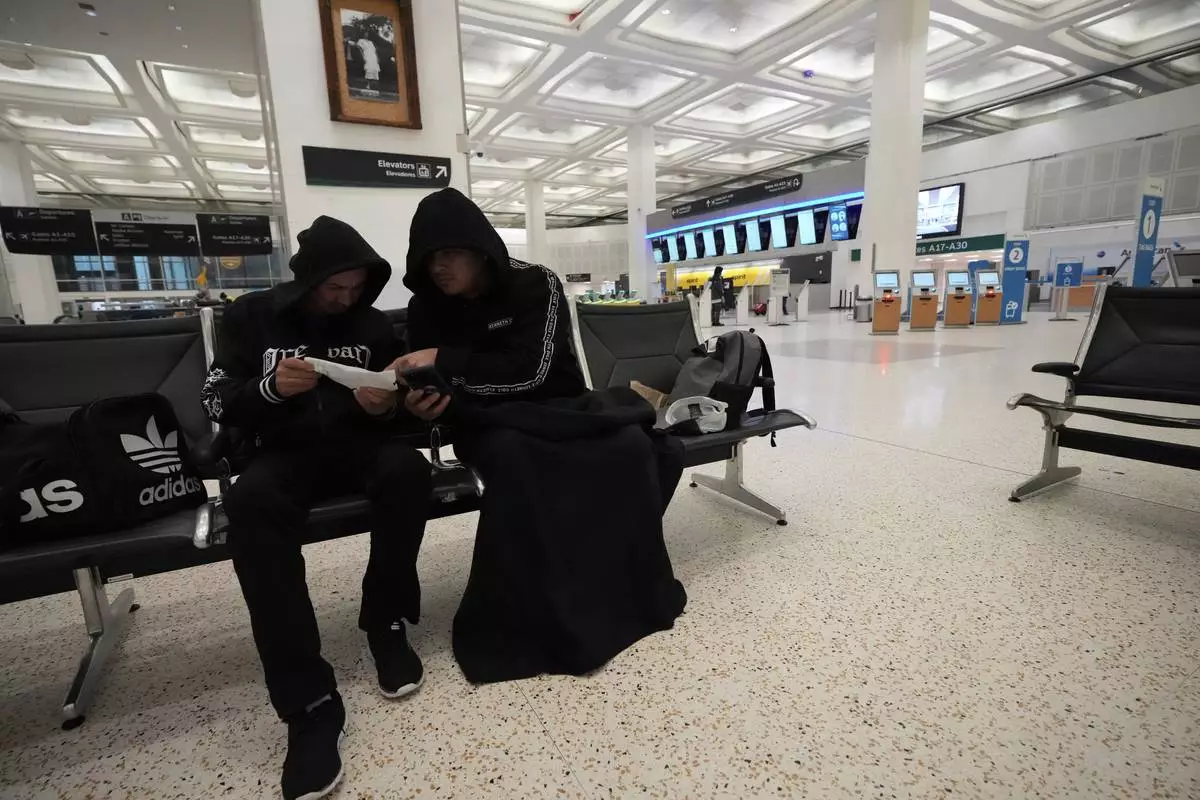
Gilmar Hernandez, left, and Cesar Santos, who spent a night at the closed George Bush Intercontinental Airport, wait for the next flight out Tuesday, Jan. 21, 2025, in Houston. (AP Photo/David J. Phillip)
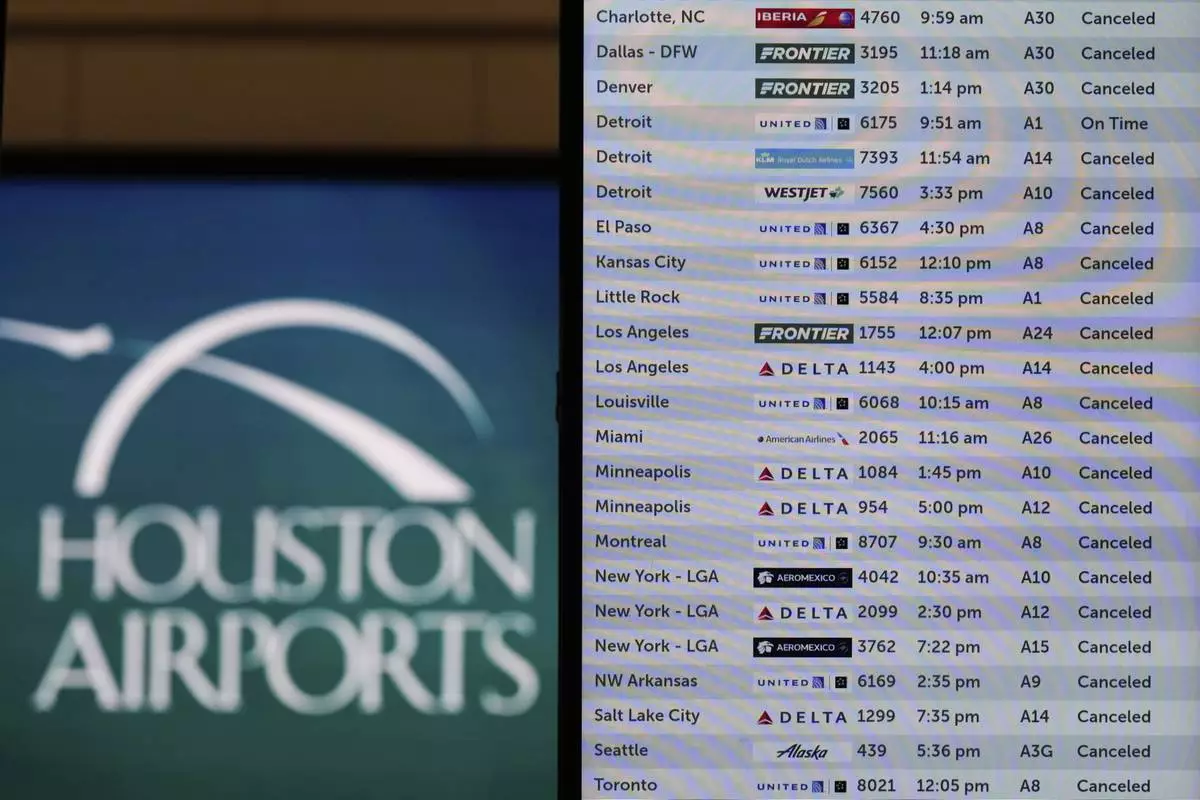
All cancelled flights are shown on the flight board at the closed George Bush Intercontinental Airport Tuesday, Jan. 21, 2025, in Houston. (AP Photo/David J. Phillip)
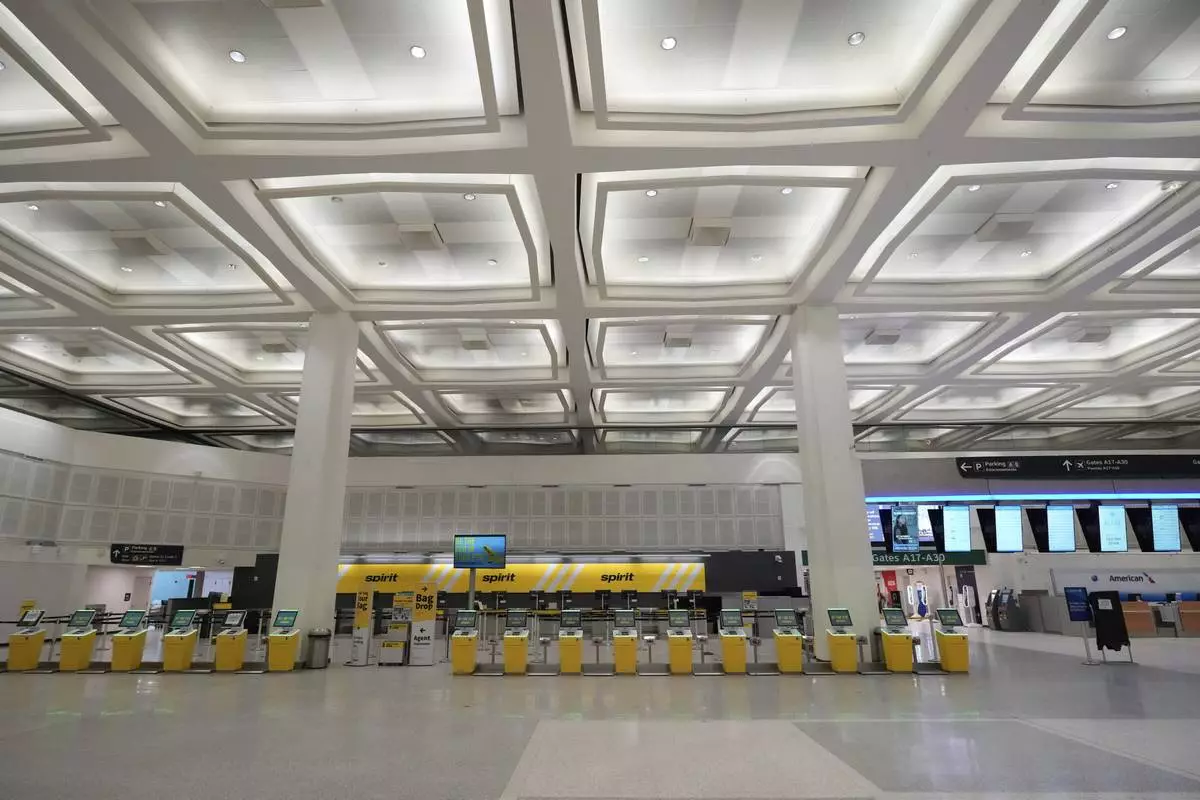
An empty terminal is seen at the closed at George Bush Intercontinental Airport Tuesday, Jan. 21, 2025, in Houston. (AP Photo/David J. Phillip)
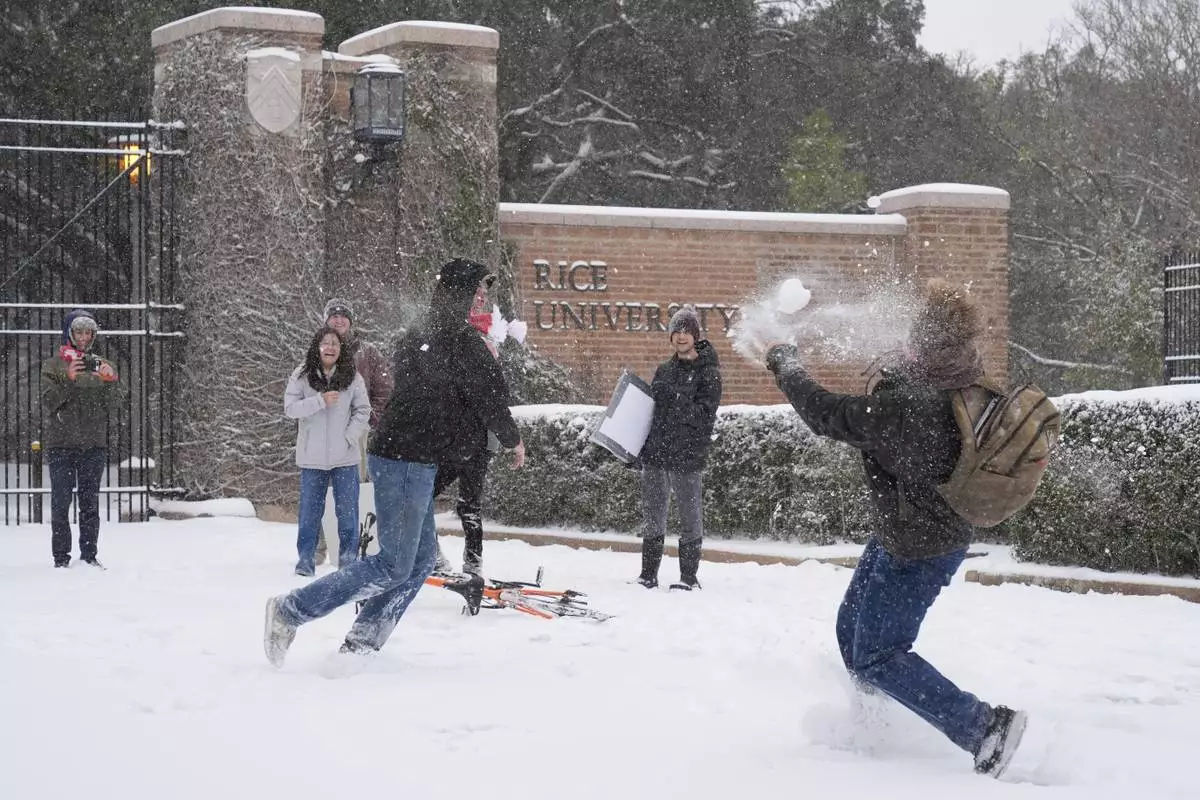
Braedon McCants hits Thomas Pickell with a snowball as they snowball fights at Rice University campus Tuesday, Jan. 21, 2025, in Houston. (AP Photo/Ashley Landis)

Snow falls as the memorial for the victims of a deadly truck attack on New Year's Day in the French Quarter is seen in New Orleans, Tuesday, Jan. 21, 2025. (AP Photo/Gerald Herbert)

A person walks to Jackson Square as snow falls in the French Quarter in New Orleans, Tuesday, Jan. 21, 2025. (AP Photo/Gerald Herbert)

People take a walk in the neighborhood Tuesday, Jan. 21, 2025, in Houston. (AP Photo/Ashley Landis)

A person stops to take a picture at Jackson Square as snow falls in the French Quarter in New Orleans, Tuesday, Jan. 21, 2025. (AP Photo/Gerald Herbert)

The Houston skyline is visible in the background as snow covers downtown streets Tuesday, Jan. 21, 2025. (Kirk Sides/Houston Chronicle via AP)

A person uses cross-country skis as he walks through a snow covered hill at Herman Park Tuesday, Jan. 21, 2025, in Houston. (AP Photo/Ashley Landis)

Abbie Schuh and her 8-year-old daughter Louise Delisio get covered in snow as they sled down a hill at Herman Park Tuesday, Jan. 21, 2025, in Houston. (AP Photo/Ashley Landis)

Icicles hang down from a vehicle during an icy winter storm in Galveston, Texas, Tuesday, Jan. 21, 2025. (Brett Coomer/Houston Chronicle via AP)

People take a walk in the neighborhood Tuesday, Jan. 21, 2025, in Houston. (AP Photo/Ashley Landis)

Abel Allen, in a Spider-Man suit, and Angel Tircuit walk on a snow covered bridge in New Orleans, Tuesday, Jan. 21, 2025. (AP Photo/Gerald Herbert)

Cars travel on a snow covered highway Tuesday, Jan. 21, 2025, in Houston. (AP Photo/David J. Phillip)
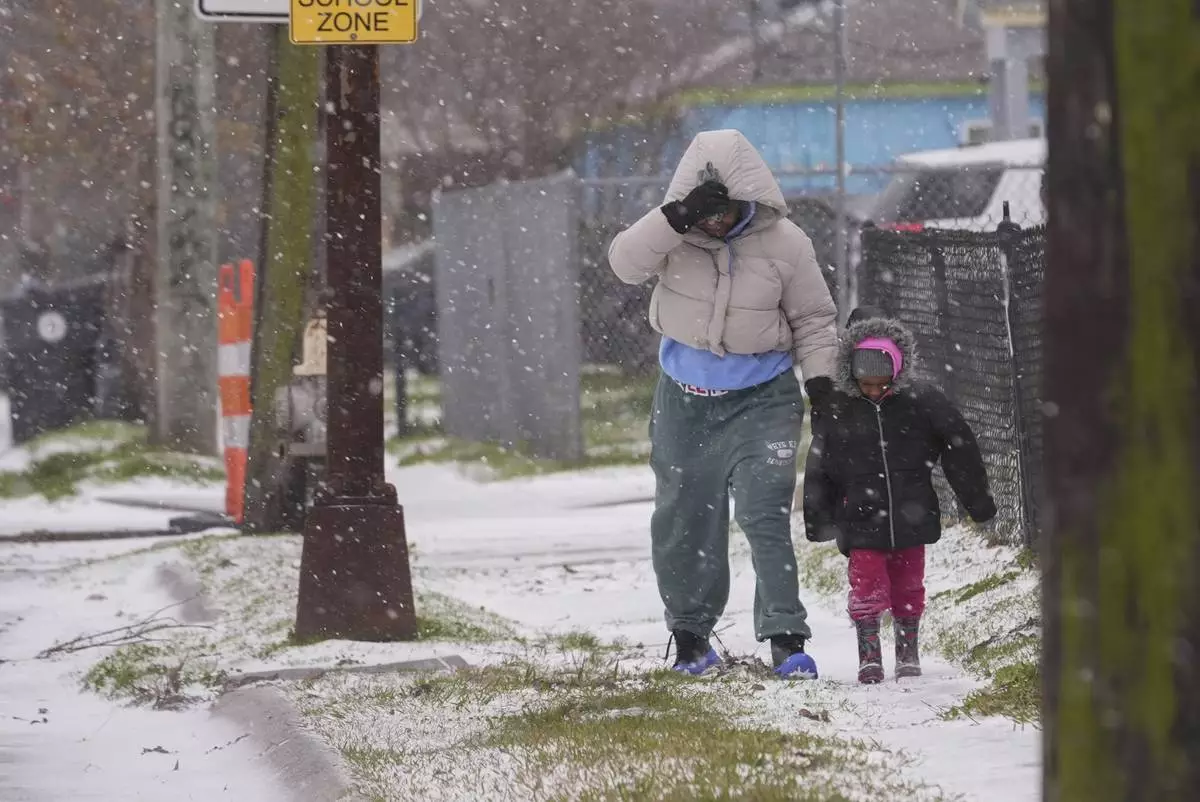
Lesley Martin and her 4-year-old daughter Layla Richardson walk on a snow covered street in New Orleans, Tuesday, Jan. 21, 2025. (AP Photo/Gerald Herbert)

Snow covers Canal Street in downtown New Orleans, Tuesday, Jan. 21, 2025. (AP Photo/Gerald Herbert)

A car is covered with snow Tuesday morning, Jan. 21, 2025, in Spring, Texas. (AP Photo/David J. Phillip)
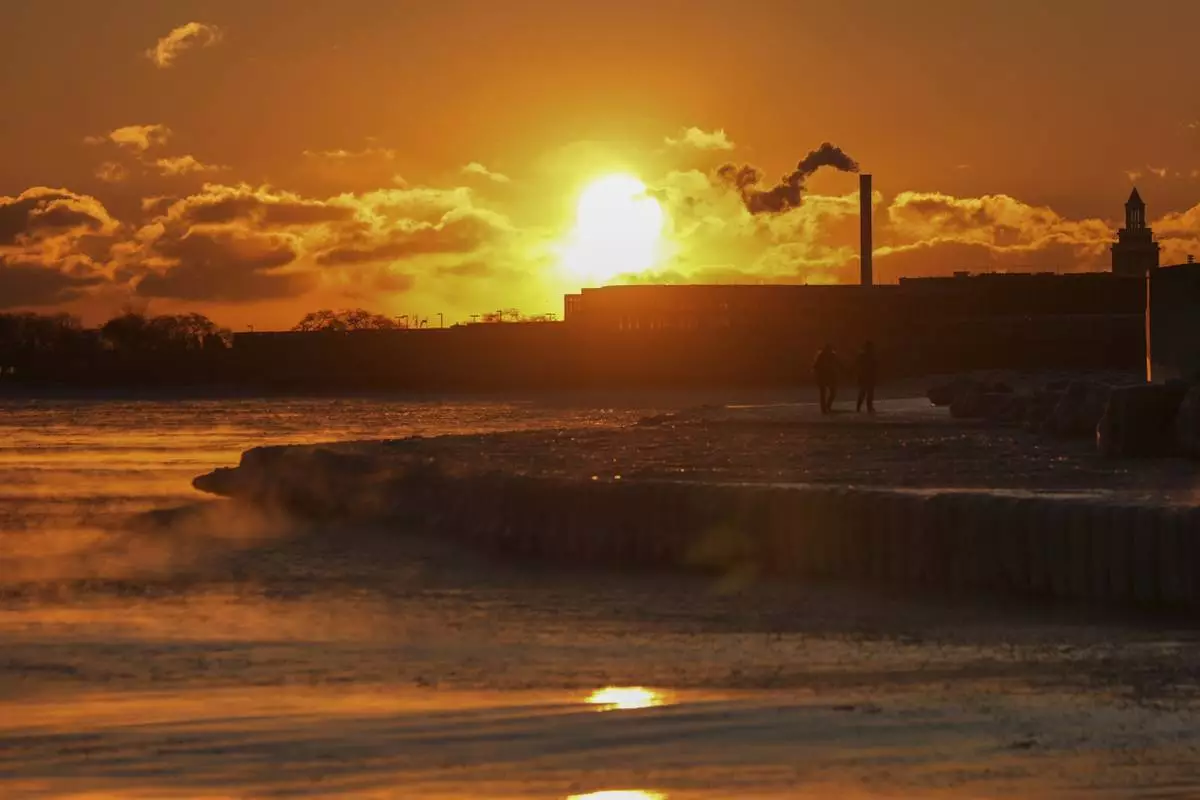
A couple take a walk at sunrise near the icy Oak Street Beach along the shore of Lake Michigan on Monday, Jan. 20, 2025, in Chicago, as the weather service issued cold weather advisories across the Great Lakes region. (AP Photo/Kiichiro Sato)

Harahan police respond to a building security alarm during a rare snowstorm in Harahan, La., a suburb of New Orleans, Tuesday, Jan. 21, 2025. (AP Photo/Gerald Herbert)

A billboard advertises for a heating and air conditioning company Monday, Jan. 20, 2025, in St. Joseph, Mich., as bitterly cold temperatures in the single digits are expected over the new few days throughout Michigan. (Don Campbell/The Herald-Palladium via AP)

Employee Ola Williams unwraps one of the last pallets of salt inside a Home Depot, as people prepare for a rare and historic snowstorm in Baton Rouge, La., Monday, Jan. 20, 2025. (AP Photo/Gerald Herbert)

A customer looks for pipe insulation where the shelves are now empty inside a Home Depot, as people prepare for a rare and historic snowstorm in Baton Rouge, La., Monday, Jan. 20, 2025. (AP Photo/Gerald Herbert)

Blowing and drifting snow batter ice fishing huts along the shipping canal near the Emma Jean Hull Flats Monday, Jan. 20, 2025, in Benton Harbor, Mich. (Don Campbell/The Herald-Palladium via AP)

Crews clear sidewalks from blowing and drifting snow Monday, Jan. 20, 2025, at Harbor Village in Benton Harbor, Mich. (Don Campbell/The Herald-Palladium via AP)

William Amaya sells firewood Monday, Jan. 20, 2025, in Houston, ahead of a winter storm predicted to dump several inches of snow in Southeast Texas. (AP Photo/David J. Phillip)
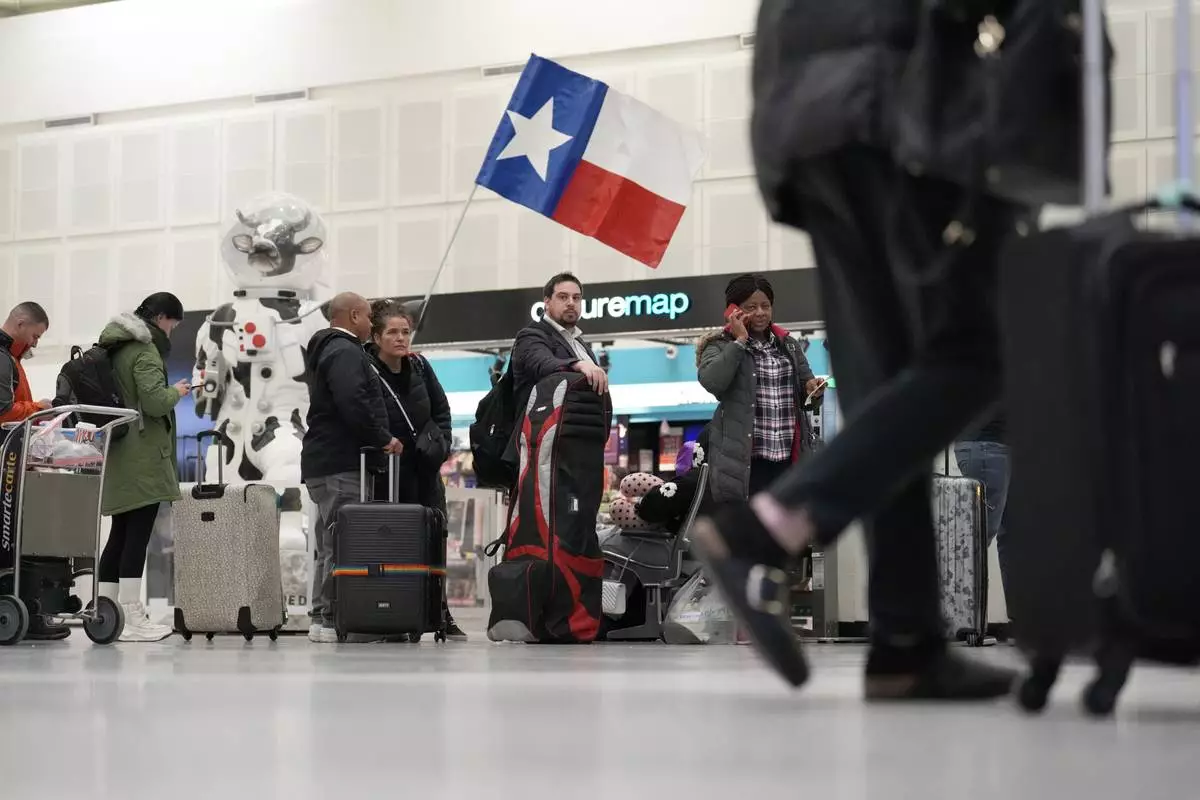
Passengers wait to check-in for their flights at George Bush Intercontinental Airport Monday, Jan. 20, 2025, in Houston, ahead of a winter storm that is expected to bring several inches of snow and will close both of Houston's airports on Tuesday. (AP Photo/David J. Phillip))

Vehicles pass a sign displaying Winter storm related operations Monday, Jan. 20, 2025, in Houston, ahead of predicted several inches of snow and possibly ice in Southeast Texas. (AP Photo/David J. Phillip

Friends and family enjoy a fun morning tubing down the hill behind Sherwood Heights Elementary School Auburn, Maine, Monday, Jan. 20, 2025. (Russ Dillingham/Sun Journal via AP)

William Amaya sells firewood out of his pickup truck Monday, Jan. 20, 2025, in Houston, ahead of a winter storm predicted to dump several inches of snow in Southeast Texas. (AP Photo/David J. Phillip)
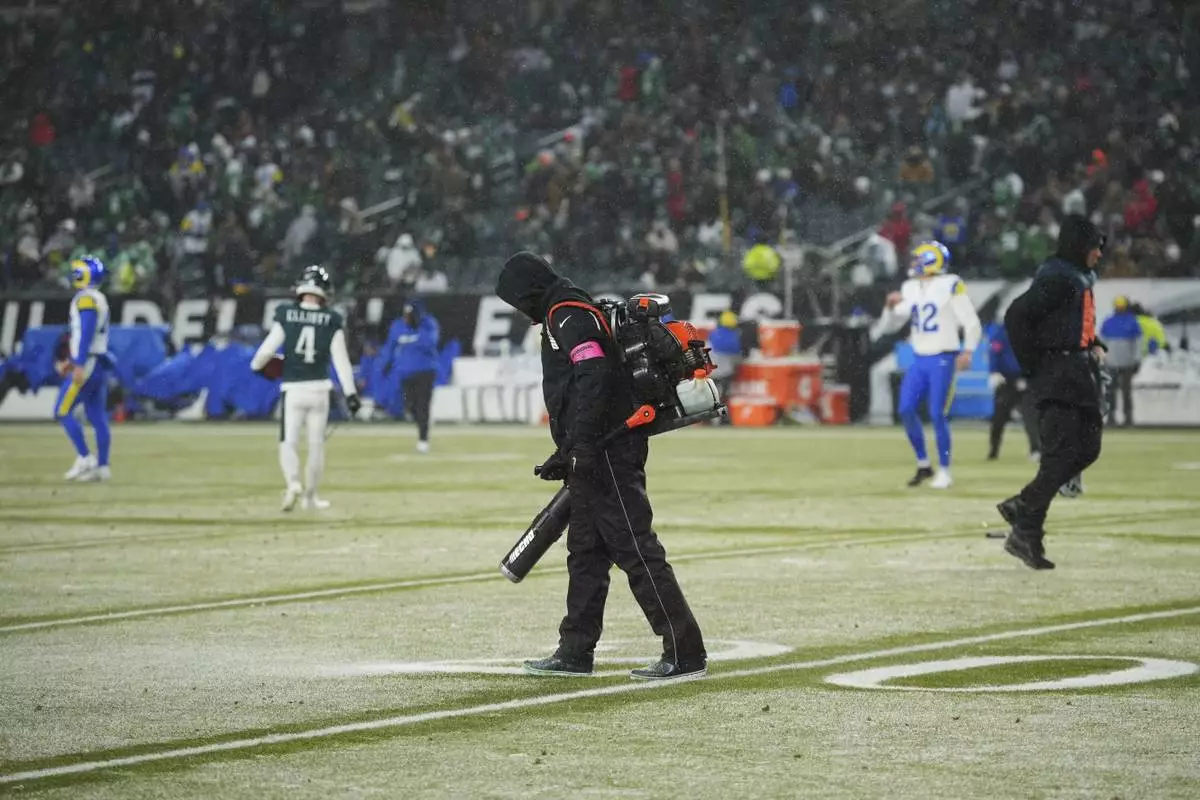
Snow is cleared as the first half ends of an NFL football NFC divisional playoff game between the Philadelphia Eagles and the Los Angeles Rams on Sunday, Jan. 19, 2025, in Philadelphia. (AP Photo/Matt Slocum)
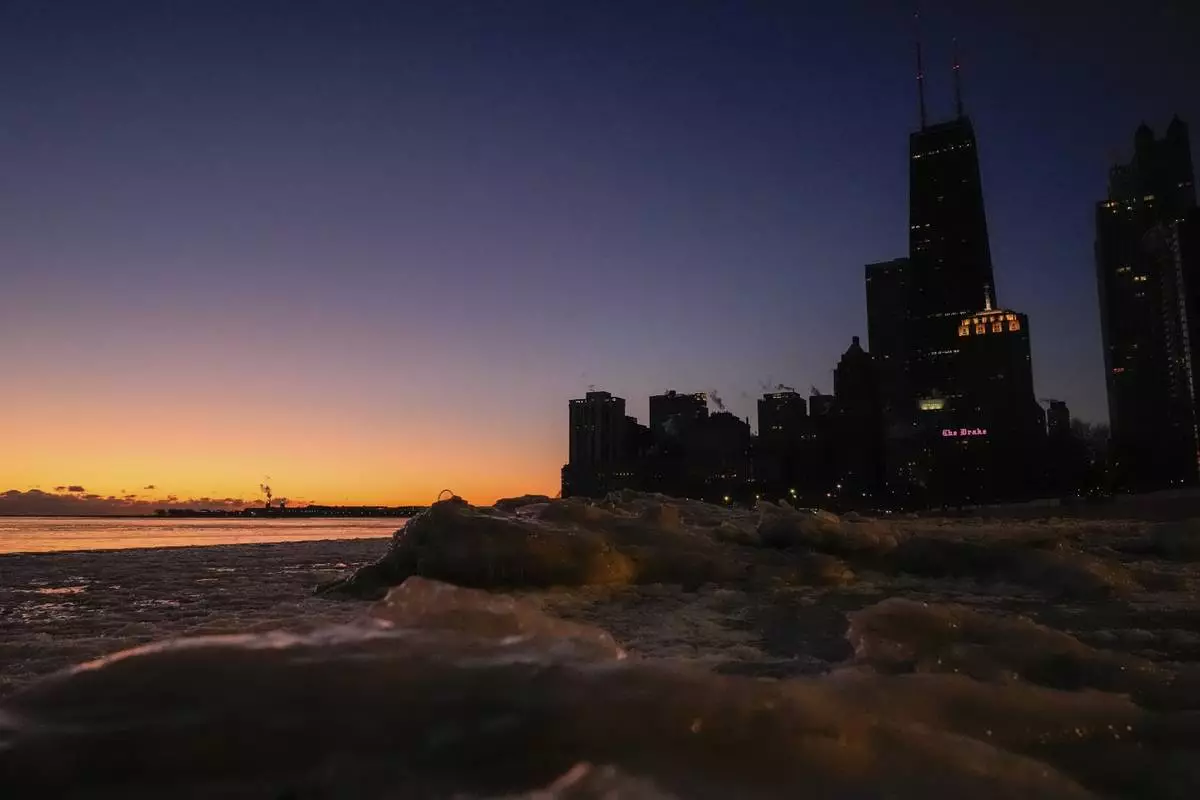
Ice builds up along the shore of Lake Michigan before the sunrise Monday, Jan. 20, 2025, in Chicago as the weather service issued cold weather advisories across the Great Lakes region as high temperatures in many places were expected only to rise into the single digits Monday and Tuesday. (AP Photo/Kiichiro Sato)

A pedestrian crosses as a pickup truck equipped with a snow plow waits at the traffic signal after a winter storm plunged daytime high temperatures into the single digits and left up to six inches of snow in its wake Monday, Jan. 20, 2025, in Denver. (AP Photo/David Zalubowski)
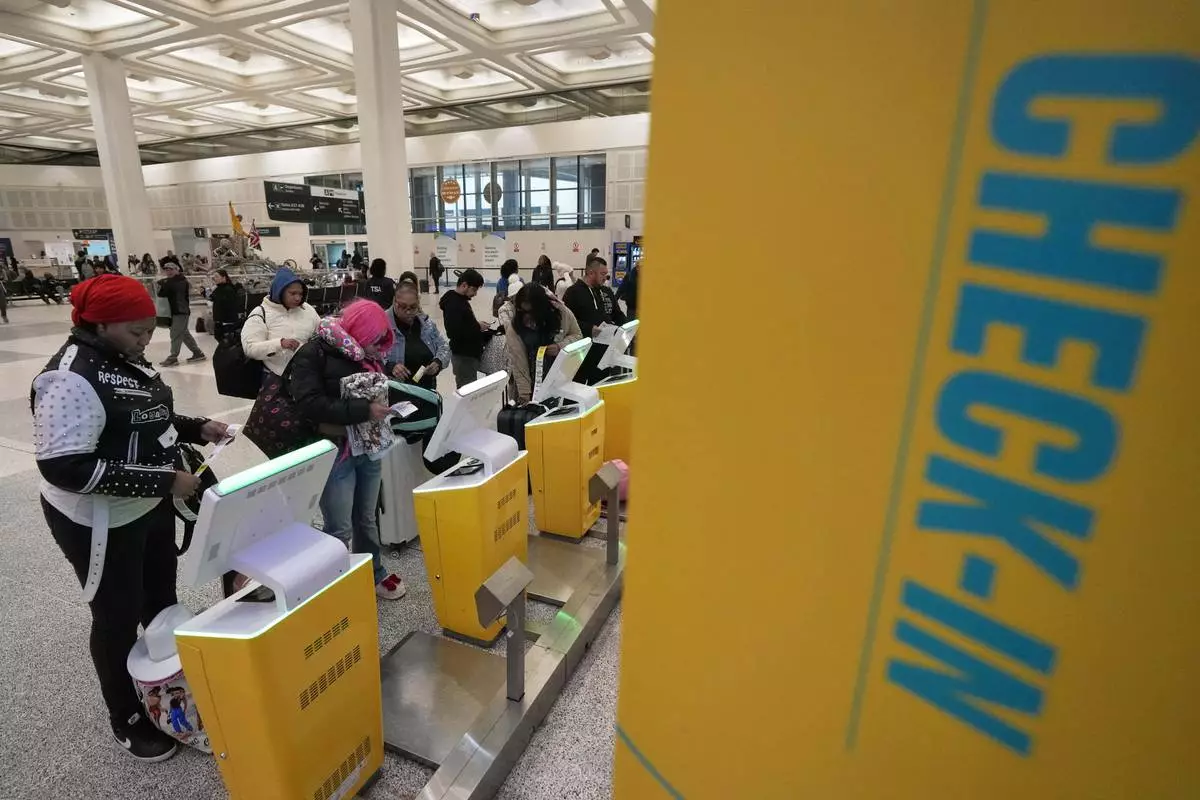
Passengers check-in for their flights at George Bush Intercontinental Airport Monday, Jan. 20, 2025, in Houston, ahead of a winter storm that will close both of Houston's airports Tuesday. (AP Photo/David J. Phillip))
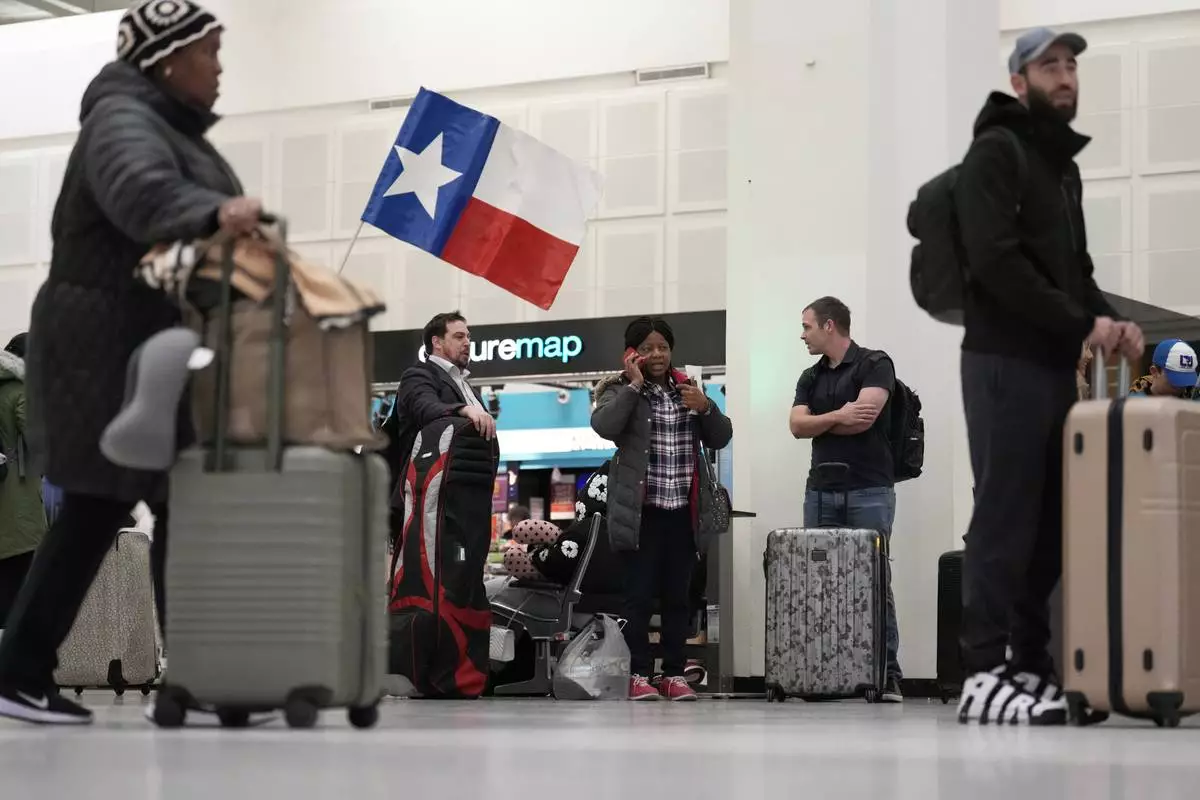
Passengers wait to check-in for their flights at George Bush Intercontinental Airport Monday, Jan. 20, 2025, in Houston, ahead of a winter storm that is expected to bring several inches of snow and will close both of Houston's airports on Tuesday. (AP Photo/David J. Phillip))

Kyle Foss holds his son Kasen as they slide behind Sherwood Heights Elementary School in Auburn, Maine, Monday, Jan. 20, 2025, with their family and friends. (Russ Dillingham/Sun Journal via AP)

Vehicles pass a sign displaying Winter storm related operations Monday, Jan. 20, 2025, in Houston, ahead of predicted several inches of snow and possibly ice in Southeast Texas. (AP Photo/David J. Phillip)

A person stands on ice at Oak Street Beach along the shore of Lake Michigan to take pictures before the sunrise Monday, Jan. 20, 2025, in Chicago, as the weather service issued cold weather advisories across the Great Lakes region as high temperatures in many places were expected only to rise into the single digits Monday and Tuesday. (AP Photo/Kiichiro Sato)

A motorist clears snow from a utility vehicle after a winter storm plunged daytime high temperatures into the single digits and left up to six inches of snow in its wake Monday, Jan. 20, 2025, in Denver. (AP Photo/David Zalubowski)

Hailee Morin holds her child, Guide Monday morning as they zip down the hill behind Sherwood Heights Elementary School Auburn, Maine, Monday, Jan. 20, 2025, with their family and friends. (Russ Dillingham/Sun Journal via AP)

A cyclist navigates 13th Avenue after a winter storm plunged daytime high temperatures into the single digits and left up to six inches of snow in its wake Monday, Jan. 20, 2025, in Denver. (AP Photo/David Zalubowski)

Kristina Foss holds onto her daughter Kayleigh as they plow through snow at the bottom of the hill behind Sherwood Heights Elementary School Auburn, Maine, Monday, Jan. 20, 2025, with family and friends. (Russ Dillingham/Sun Journal via AP)








